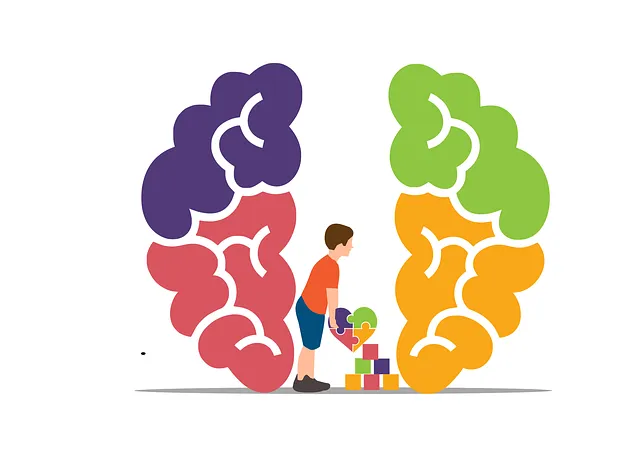Wheat Ridge Kaiser mental health programs tackle stress through proactive, holistic approaches, combining culturally sensitive training, tools like Mental Wellness Journaling, and evidence-based practices. They focus on emotional intelligence development, positive thinking, mood management, mindfulness, and relaxation to build resilience and enhance well-being, making mental healthcare accessible and transformative for all.
“Stress management is a vital skill in today’s fast-paced world, and learning effective techniques can significantly impact our overall well-being. This article explores comprehensive strategies for handling stress, drawing insights from Wheat Ridge Kaiser’s renowned mental health programs. We’ll delve into the causes and consequences of stress, discover unique approaches to daily management, and uncover long-term building blocks for resilience. By implementing these techniques, you can navigate life’s challenges with greater ease.”
- Understanding Stress: Causes and Impact
- Wheat Ridge Kaiser's Approach to Mental Health Programs
- Techniques for Daily Stress Management
- Building Resilience: Long-term Strategies
Understanding Stress: Causes and Impact

Stress is a ubiquitous aspect of modern life, stemming from various sources like work pressure, financial constraints, or personal relationships. Understanding its causes and impact is crucial for effective stress management. At Wheat Ridge Kaiser mental health programs, we recognize that chronic stress can lead to both physical and psychological ailments, affecting overall well-being. From increased heart rate and blood pressure to anxiety, depression, and even weakened immune systems, stress’s repercussions are far-reaching.
Cultural Competency Training for healthcare providers plays a vital role in addressing these issues sensitively. By promoting mental health awareness, we empower individuals with tools like Mental Wellness Journaling Exercises, enabling them to recognize and manage their stress levels proactively. Through such initiatives, Wheat Ridge Kaiser strives to foster an environment where everyone can access guidance and support to navigate life’s challenges more effectively.
Wheat Ridge Kaiser's Approach to Mental Health Programs

Wheat Ridge Kaiser, known for its comprehensive healthcare services, offers a unique and holistic approach to mental health programs. Their focus on mental wellness coaching empowers individuals to develop effective coping strategies and enhance their overall emotional regulation. By integrating various techniques, including evidence-based practices and personalized support, these programs cater to diverse needs.
The Wheat Ridge Kaiser mental health programs prioritize risk assessment as a crucial step for mental health professionals. This enables them to provide tailored interventions, ensuring safety and effectiveness. Through ongoing development and training, their team delivers cutting-edge solutions, making mental healthcare accessible and transformative for all who seek it.
Techniques for Daily Stress Management

In today’s fast-paced world, stress has become an ever-present companion for many individuals. However, managing stress effectively is a valuable skill that can significantly improve overall well-being and quality of life. The Wheat Ridge Kaiser mental health programs offer a range of techniques tailored to daily stress management, empowering individuals to take control of their mental health. One such technique is Positive Thinking, which involves consciously shifting one’s focus towards more optimistic thoughts. By practicing gratitude, reframing negative thoughts, and adopting an attitude of self-compassion, individuals can reduce the impact of stressors and enhance their overall mood.
Additionally, Mood Management plays a crucial role in stress mitigation. The Kaiser programs teach strategies like mindfulness meditation, deep breathing exercises, and progressive muscle relaxation. These techniques help individuals recognize and regulate their emotional responses, enabling them to navigate challenging situations with greater composure. Incorporating regular physical activity, maintaining a balanced diet, and ensuring adequate sleep are also essential components of stress management, as recommended by the Risk Management Planning for Mental Health Professionals. By integrating these practices into daily routines, individuals can build resilience and better cope with life’s demands.
Building Resilience: Long-term Strategies

Building resilience is a key aspect of long-term stress management, and it’s an area where Wheat Ridge Kaiser mental health programs truly shine. By implementing strategies that foster adaptability and strength in the face of adversity, individuals can better navigate life’s challenges. These techniques often involve cultivating emotional intelligence—the ability to recognize and manage one’s own emotions as well as understand and empathize with others.
Developing emotional intelligence helps in regulating stress responses, improving self-esteem, and enhancing overall well-being. It equips people with the skills to confront stressors head-on, reframe negative thoughts, and maintain a balanced perspective. Through various exercises and practices, individuals can learn to respond rather than react to stressful situations, thereby reducing anxiety relief efforts and promoting a more sustainable sense of calm over time.
In light of the above discussions, it’s clear that effective stress management begins with understanding its causes and impacts. Organizations like Wheat Ridge Kaiser are leading the way in mental health programs by integrating innovative techniques into daily life and fostering resilience through long-term strategies. By adopting these practices, individuals can navigate life’s challenges more effectively, enhancing overall well-being. Incorporating Wheat Ridge Kaiser’s mental health programs can be a transformative step towards a stress-resilient future.






